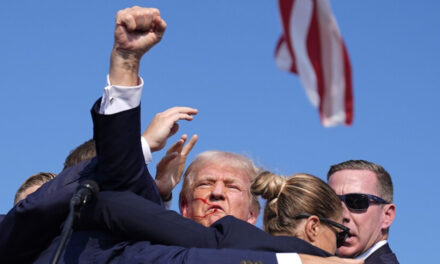
Trump Declares National Emergency to Block Chinese Spying
President Trump on Wednesday declared a national emergency and signed an executive order banning US companies from using any communications technology produced by ‘foreign adversaries.’
The long-awaited ban, which is clearly aimed at Chinese tech companies Huawei and ZTE, is part of a broader effort to safeguard the US supply chain from foreign interference. The ban makes use of the International Emergency Economic Powers Act, which gives Trump the power to regulate commerce as related to a national emergency.
“China’s main export is espionage,” argues Senator Ben Sasse (R-NE). “And the distinction between the Chinese Communist Party and Chinese ‘private-sector’ businesses like Huawei is imaginary.”
Opponents of the ban include small rural carriers, who rely on Chinese-made parts because they are cheaper.
Trump’s chief concern is that companies like Huawei will use their tech to share information with Beijing. If we use Chinese tech in our 5G networks, we risk giving Beijing access to everything from smart speakers to self-driving cars.
“Foreign adversaries are increasingly creating and exploiting vulnerabilities in information and communications technology and services…in order to commit malicious cyber-enabled actions, including economic and industrial espionage against the United States and its people,” wrote Trump. The “unrestricted acquisition or use” of Chinese communications technology “constitutes an unusual and extraordinary threat to the national security, foreign policy, and economy of the United States.”
The executive order gives the Commerce Department five months to define which entities pose a national security risk. The department has already added Huawei to the Bureau of Industry and Security Entity List, meaning US companies must obtain a license in order to sell or transfer any technology to Huawei.
In August 2018, Trump signed a bill blocking the US government from using any equipment produced by Huawei or ZTE. In December, US prosecutors charged Huawei’s chief financial officer with bank and wire fraud related to alleged violations of US sanctions on Iran.
In January, prosecutors accused Huawei of attempting to steal trade secrets from T-Mobile in Washington state. Last week, the FCC voted to ban China Mobile Ltd. from the US market over national security concerns.
The executive order is also a signal to European allies that the US is serious about its decision to exclude Chinese companies from its 5G network. While Japan, Australia, and New Zealand have responded to Trump’s warnings, Canada, Britain and Germany remain unconvinced.

























I had to paws on this as reading Dempsey’s tail of howling at the moon about my best friend was…
Hammon, you guys are big on personality but light in the loafers on facts. You say I am wrong on…
Dunger is so wrong on everything that he’s funny. Like the movie slingblade. Haha funny or queer funny.
The idiots in this country would love to have that commie cunt for president
I want my dog to leave a huuuuuge carbon paw print